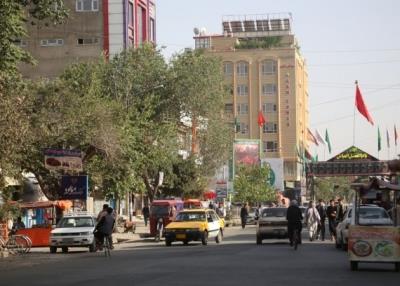Soaring Fuel Prices In Afghanistan Deepen Daily Struggles For People
Citing findings, Afghan media outlet TOLO news reported that over the past four weeks, the price of one liter of petrol has surged by 4 Afghanis(official Afghan currency), diesel by 6 Afghanis, and liquefied gas by 2 Afghanis per kilogram.
The taxi drivers in the country complain that the hike in fuel prices has created serious challenges for them, while no authority takes responsibility for addressing the crisis.
“This is all the traders' doing. After ten days, they sit together and raise the price of fuel and gas. In the past month alone, fuel prices have gone up by 11 Afghanis,” TOLO news quoted taxi driver Mohammad Tahir as saying.
“Fuel gets expensive, gas gets expensive, and no one is accountable. Nobody even asks why the prices have risen. If one truck breaks down in Salang, fuel and gas prices go up here in Kabul,” another driver said.
Several drivers in Kabul urged the Afghan authorities to take urgent measures regarding the surge in fuel costs.
“My complaint is against the national traders. They are influential people, big businessmen of the country. When they increase fuel and gas prices by 10 Afghanis, they only reduce them by 1 Afghani later. The same happens with food prices,” said Sher Ahmad.
Raising concern, another taxi driver who works in Kabul said,“All this must be taken seriously, and traders must be held accountable. When the dollar rises, prices go up, but when it drops, prices remain the same.”
According to the Afghanistan Chamber of Commerce and Investment, the three reasons for the surging prices are a $150 hike per ton of fuel in global markets, a ban on low-quality fuel imports, and challenges with fuel exports from Russia and Kazakhstan.
Reports suggest that with only 10 per cent of its fuel and gas produced domestically, Afghanistan remains dependent on imports due to the lack of investment in major local resources.
Economic analysts argue that investment in domestic resources and improved import management could curb price volatility and reduce public hardship.

Legal Disclaimer:
MENAFN provides the
information “as is” without warranty of any kind. We do not accept
any responsibility or liability for the accuracy, content, images,
videos, licenses, completeness, legality, or reliability of the information
contained in this article. If you have any complaints or copyright
issues related to this article, kindly contact the provider above.
Most popular stories
Market Research

- Daytrading Publishes New Study On The Dangers Of AI Tools Used By Traders
- Primexbt Launches Empowering Traders To Succeed Campaign, Leading A New Era Of Trading
- Wallpaper Market Size, Industry Overview, Latest Insights And Forecast 2025-2033
- Excellion Finance Scales Market-Neutral Defi Strategies With Fordefi's MPC Wallet
- ROVR Releases Open Dataset To Power The Future Of Spatial AI, Robotics, And Autonomous Systems
- Ethereum-Based Meme Project Pepeto ($PEPETO) Surges Past $6.5M In Presale






















Comments
No comment